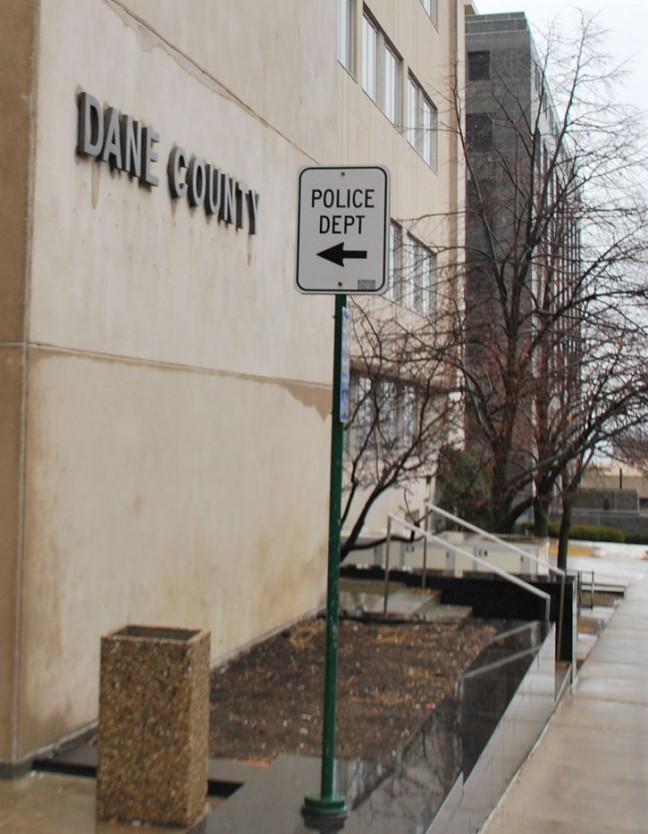Dane County received a series of grants to further improve mental healthcare access within the criminal justice system and broader population.
A report from the Dane County Behavioral Health Needs Assessment found approximately 46% of inmates within the county’s jail system were diagnosed with some form of mental health ailment. Given nearly half of Dane County’s inmates may require varying degrees of mental health assistance, the county moved to address the issue.
The Dane County Criminal Justice Council applied for a grant to assist countywide efforts in developing stronger, less racialized mental healthcare for its prison population. The National Association of Counties and the John D. and Catherine T. MacArthur Foundation provided Dane County additional funding for their mission, prompting celebration among county officials like Colleen Clark Bernhardt, the CJC Equity and Criminal Justice Council Coordinator.
“This allows Dane County to work with peer counties and national experts and signifies the long term commitment Dane County has to racial equity and criminal justice improvement,” Bernhardt said.
The new funding arrives on the heels of a period marked by an increase in prisoner suicides nationally. A Bureau of Justice Statistics report found for every 100,000 prisoners, 50 would commit suicide, between 2000 and 2014. Additionally, 40% of inmate suicides during the same time period occurred within seven days of an inmate’s admission.
National inmate death rates also point to racial discrepancies related to healthcare access. According to a BJS report, in 2014 non-white prisoners accounted for over half of all inmate deaths and African American inmates made up nearly 32% of inmate deaths.
As part of this new grant, Dane County will begin working with the Peer Learning Network, a collaborative effort of counties and criminal justice experts, to reduce the number of incarcerated people suffering from mental illness, Bernhardt said. The CJC’s Behavioral and Mental Health Subcommittee, created in May 2019, is tasked specifically with issues like this, Bernhardt said.
The information from the PLN will contribute to the subcommittee, Bernhardt said.
“It advances learning on different ways to divert folks who are struggling with a behavioral health crisis from formal criminal justice involvement,” Bernhardt said.
Elizabeth Doyle, Dane County’s District 1 supervisor, said in conjunction with the CJC’s work related to the MacArthur Foundation, the Behavioral and Mental Health Subcommittee also received $1.5 million to work alongside the C.J. Tubbs Fund for Hope, Healing and Recovery in the hopes of closing socioeconomic and racial gaps in access to mental healthcare.
Doyle added this project plan to take an innovative approach to their task, and will implement technology and peer support networks. Doyle said of the total funding, $500,000 will be allocated to establishing a new mental health call center to help those wrestling with mental health issues maneuver through the process.
“One of the things that emerged when talking with the Tubbs family and other folks that have struggled to navigate the system of substance abuse and mental health resources is just how difficult it is to navigate,” Doyle said.
The call center is meant to help people navigate the system and point them towards specific services, Doyle said.
In addition to combating racial divisions in mental health care access, Doyle said there are hopes to simplify treatment for those experiencing addiction or mental illness while also improving accessibility.
As mental healthcare moves to the forefront of the county’s public health discussion, there are many who see these recent grants as a vital step in normalizing mental wellness, such as Anna Moffit, the Executive Director of Dane County’s National Alliance on Mental Illness chapter.
“What’s taking place right now at the county level is very exciting for us because we’re really seeing a strong move toward the decriminalization of mental illness,” Moffit said.
The PLN will hopefully defer and deflect those living with a mental illness away from the criminal justice system, Moffit said.
Dane County’s work toward equity in mental healthcare is viewed by many, including Bernhardt, as a concrete example of the county’s dedication to combating racial inequality.
Doyle believes while the CJC and the subcommittee’s actions are taking the right step in the direction of equity, the county is still far from where she believes it should be with regards to social justice.
“We definitely have very stark racial disparities in Dane County be it mental health or infant mortality,” Doyle said. “We’re definitely behind where we should be.”
Dane County will begin implementing its new mental health measures at the end of the month. The PLN will run from Jan. 2020 until June 2021.


